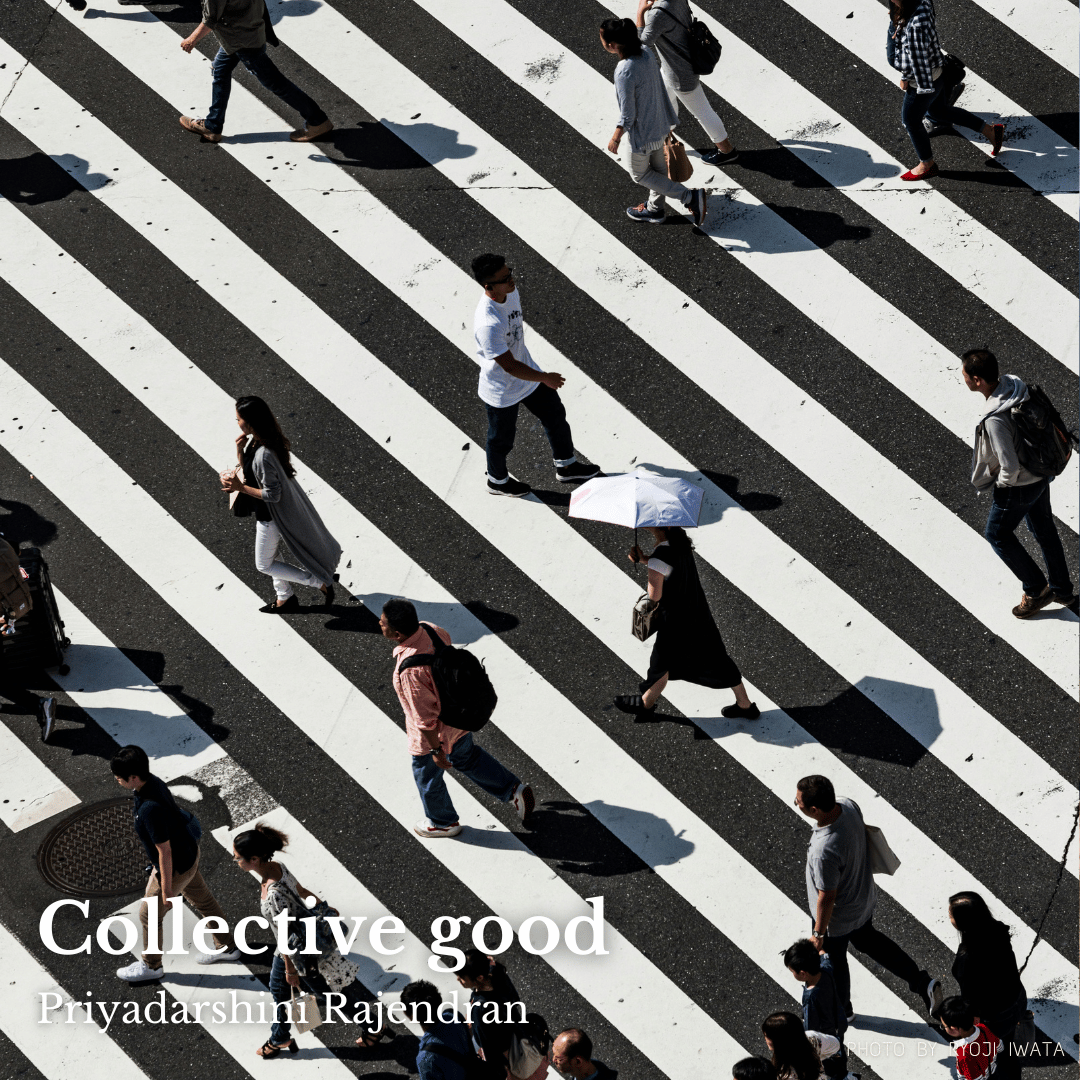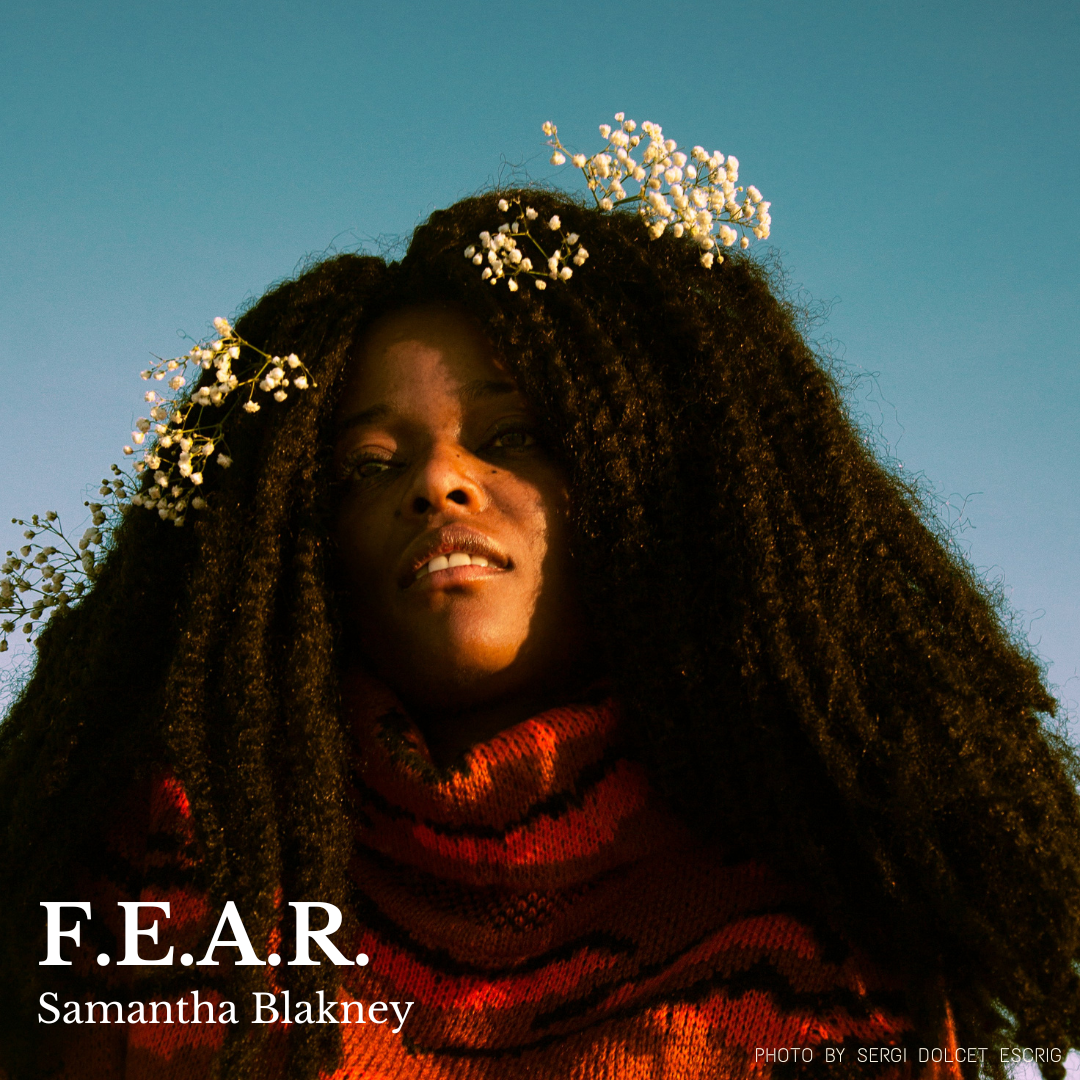In October of 2022, we released our second Open Call: How might we view healing in mental health through art, letters, stories and poetry following the pandemic? The following is an essay submission we received from this open call.
“I am submitting an essay that details my feelings of inadequacy and shame during and after the pandemic, and how I tried to overcome them. Not everyone can pull themselves out of the rut, and I talk about why having others on the journey to healing is important too.”
Priyadarshini Rajendran
Collective good
Suicide has become such a fact of life, despite it meaning the literal opposite: so many cultures have the most generic terminology for such a dreary act.
In my country, India, Aatmahatya, or literally “killing your soul” is an ugly truth swept under the rug. It is talked about in hushed tones whenever it happens- teens and young adults unable to square up to the life they’re leading, compared to the lies they’ve sold their family, dissatisfied adults stuck in loveless relationships or toxic work environments, lower strata laborers and farmers neck-deep in debts, even children (!) unable to stand up to everyday horrific bullying. Approximately 500 people take their lives on a daily basis and yet there is no urgency in the talks around these matters. Life goes on as it has for others in the neighborhood, but the shame always lingers in the household of the deceased, causing others to avert their eyes as they walk away. Having lost a dear friend (who was only 16) to suicide, in my youth, opened my eyes to the insidious ways Indian society shuns those that can’t live up to its rules.
There’s a song called “Silver Spoon” by Korean group BTS that introduced me to the concept of “N giving-up” generations in the South Korean society- for instance, Sampo sedae is the Three giving-up generation: courtship, marriage and childbirth. Opo sedae is the Five giving-up generation, that includes employment and home ownership. This goes on up to the tenth generation, wherein a person has additionally given up on hope, health, relationships, physical appearance, and ultimately, life itself.
The pandemic has exacerbated the problem further, exposing the root issues embedded deep in every society. My family and I were left relatively unscathed by the disease, but there was never a day that I didn’t fear the worst, or cry myself to sleep thinking about these years I would never get back while secluded from friends and my supposed “youth.” Although I tried to give back to society in every way I could, I still felt inadequate and useless. Thinking of the Maslow triangle, I was golden on the bottom layers- but I craved the feelings of freedom and belonging, without which I felt adrift in a sea of panicky loneliness. Yet, there were so many unfortunate enough to lose their livelihoods, homes and even families to the disease, who couldn’t even think of those top layer needs. I would try to sober myself up thinking about how privileged I was, but this strategy didn’t always work. Finding comfort with my family or friends no longer seemed viable- when everyone was struggling with their problems, what right did I have to burden them with mine? I only found solace through writing, and yet, I couldn’t find it in me to pull up an empty document without feeling incompetent. I felt like I’d joined the Nine giving-up generation- it really did feel like the end of the road most times. I knew I was not alone in feeling this but never had the courage to share.
And yet, why did it come to this? Why did humanity fail collectively to help each other, during perhaps the biggest test of our lives? Why did we lose more than what the disease took? Perhaps we were never taught to communicate our fears and shortcomings. We share our joys and accomplishments and bliss with extensively happy captions that signal to the world that we really are “all that”, have “all that” and our lives have been nothing but a bunch of all these moments strung together. Sharing pain, loss and depression still feels like something that should be avoided, for the better good- nobody wants that on their timeline, wants to interact with sadness on their feed. And when someone finally has the courage to share their sadness, we were never taught how to assist them with it. We have jointly forgotten what it means to be really alone, since superficial connection is all that matters now. We look to others to lead the way and berate them if they don’t, but are remarkably short-sighted when it comes to our own apathy. I am trying now to make a conscious effort to forge deeper connections- vulnerability, when done right, is a thing of beauty that can help us bond better.
The aforementioned song goes on to mention how the media and the older generations pit these problems squarely on the youngsters, saying they lack the drive to make something of their life; but really its the rigidity of society wanting to maintain its rules and hierarchy, that is to blame. How often have we wanted to take the less traveled road but shunned it due to the underlying fear of judgment? It is easy to say that we must forget these shackles and proceed with whatever feels right to us but implementing it requires a different kind of courage not many of us can cultivate. These constant feelings of inadequacy and shame can cause anyone to break down. I am reminded at such times of a piece of advice my mother gave me- If it’s meant to be, it won’t be. You have to make it be. However big or small the change you want to effect is, it has to start with you and only you. Others can perhaps encourage you on the way but the desire to kickstart has to be an individual journey. I was terribly depressed mid-lockdown and had next to no drive to even just get up from day to day, much less achieve my creative goals. Setting myself simple-to-complete tasks every waking moment helped- when the tasks don’t require much of you, you start to gain a little confidence and are able to approach the bigger chores instead of just poking it and running away.
These feelings of deficiency have stayed with me even after the pandemic, though almost everything is back to normal now. I still don’t feel completely used to company and want to scram, and the thought of having to talk to more than one person at a time gives me a bellyache. Life’s problems were seldom easy, and now they come with the added complexity of my vanquished confidence. But just like BTS ends their song with the refrain “We will live together, even though we are underdogs,” I see faith in myself and humanity still.
I am not alone. Together is power.
Follow Us On Social Media!
Instagram: @light4ph
Twitter: @light4ph
Facebook: @LIGHT – Leaders Igniting Generational Healing and Transformation
Youtube: @light4ph



